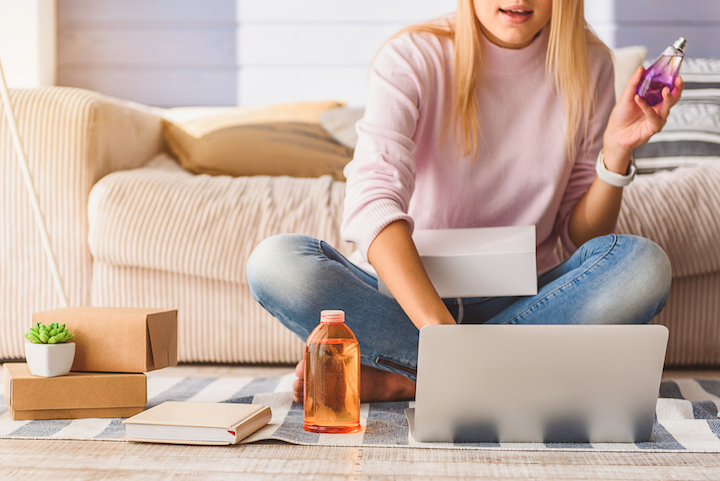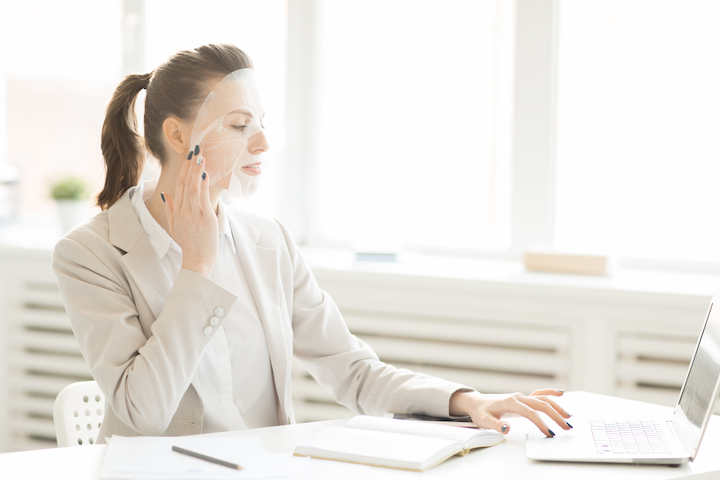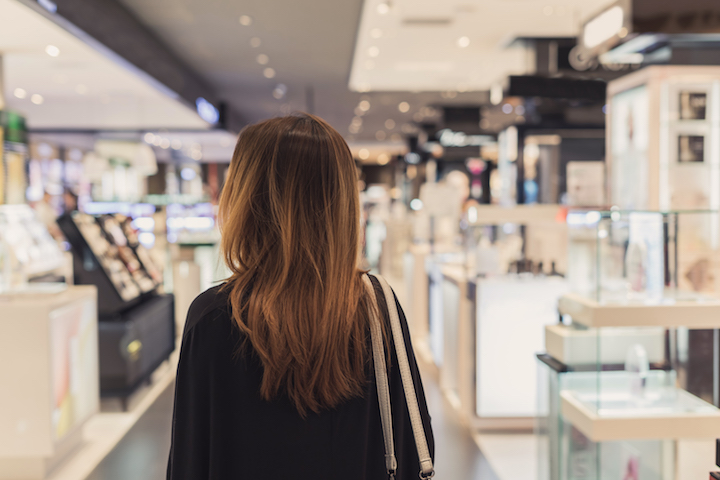How COVID-19 Is Changing the Beauty Industry — & Why It May Never Look the Same Again
31 Comments
Marieve Inoue
Apr 13, 2020
In what ways is the coronavirus pandemic changing the beauty industry, and how will things look once it’s (finally!) behind us?
COVID-19 has affected us all on so many different levels. Of course, health is the main concern. But it has also impacted the economy in huge ways, and our collective and individual feeling of safety, not to mention the common anxiety brought on by what often seem like completely surreal times. Like everything and everyone else, the beauty industry is feeling the effects of the pandemic. Once life goes back to a semblance of what it was before we all shifted gears, some things will return to normal, while others are bound to be different. Which changes will stick? Here’s a look at how the beauty world has been affected so far, and what may change down the road.
What COVID-19 has changed so far
Like most local and international events, many beauty trade shows have been canceled or rescheduled. And naturally, the majority of retail stores being closed at the moment means big changes for consumers, brands, and retailers. No more waltzing into Sephora to browse new skincare launches, or heading to Ulta to pick up a new lippie. And while many international beauty aficionados were already used to purchasing a good number of products online, now we all have no other choice but to turn to retailers and brands in the e-commerce space to fill our beauty routines.

Luckily, many of them are offering free or reduced-rate shipping right now, which seems like a win-win situation: Consumers benefit from the convenience of online shopping without worrying about added costs, and beauty retailers continue to make sales despite stores being closed. But the situation may also pose challenges along the retail supply chain. “We’ve had to be very innovative,” says Jennifer Brodeur, founder and CEO of JB Skin Guru. “For us, the sales are there, but the challenge is to ensure that production stays on point.” The skincare expert and facialist to celebs like Oprah Winfrey and Michelle Obama also notes that selling online is “monumental at this point in the game.”
Other ways beauty companies are adapting: Some of the industry’s major players have been contributing directly to the fight against the virus. Luxury company LVMH started using the facilities that usually produce Christian Dior, Givenchy, and Guerlain perfumes to make hand sanitizer for French hospitals, while Coty Inc., which is behind brands like Covergirl, Sally Hansen, and Philosophy, soon followed suit.
View this post on Instagram
Other brands have banded together to collect charitable contributions and donate products to healthcare workers as a “thank you” for their invaluable work. This year, M.A.C’s Viva Glam campaign will dedicate $10 million to help support vulnerable communities affected by the virus. “Everyone is trying to do their part. If anything, the situation will have a long-lasting effect on how businesses operate in the future, by adding a model where they can convert themselves to serve in the interest of public health in some form,” says James La, founder and president of hair care line NIUCOCO.
Brands have also been launching initiatives to help consumers who are self-isolating at home, using their social media presence to share knowledge, offer support, and interact with their community in a heightened way. “For me, it’s really about connecting with the community, and giving people tips and tricks for taking care of their skin at home without it costing them anything,” explains Brodeur, who has been going live regularly on Facebook and Instagram since the beginning of the outbreak in North America. “We’re getting so much feedback from people saying that it brightens up their day,” she adds. Another example: Bite Beauty launched a campaign called #BITETheBlues with the sheer goal of entertaining its followers, and creating fun, positive content during these trying times.
As for beauty professionals like makeup artists, hair stylists, estheticians, and beauty advisors, many have had to shut down their businesses or just aren’t getting any freelance work with everything being at a standstill. But many are turning to the internet to share their knowledge. For example, hair stylists are posting tangible tips for not messing up your hair color, or cutting your own hair (only if absolutely necessary!) while quarantined at home. The situation has also pushed innovation in terms of creating more beauty-related jobs that can be done remotely: Beautytap launched a new online beauty advisor program which offers a way for beauty professionals to work from home by marketing multicultural beauty products to their current clientele, as well as developing a new customer base.
How our habits are evolving as consumers
For a lot of us, skincare is a form of self-care, so it’s not surprising to see so many across the beauty community stepping up their routines at home and indulging in multiple-step rituals that span from facial massages to nightly candlelit bubble baths (or is that just me?!). Also, raise your hand if you’ve started sheet masking while working!

People may also be gravitating toward more affordable products due to an uncertain financial situation. “I think there is a time and place for 15- and 20-step routines for certain people, but others may be trying to figure out how they can care for their skin with just maybe two or three products,” says Brodeur. For sure, “consumer wallets have or will be impacted by this pandemic,” adds La. And for some people, beauty products may be at the very bottom of their priorities.
Since we’re all going out way less than we were (read: not at all), makeup is likely taking a bit of a backburner to skincare. “I think that women who aren’t wearing as much makeup as they were are going to see their skin get better and better, and maybe consume less makeup in the long run,” says Brodeur.
Will in-store makeup and skincare testers return once the health crisis subsides? Brodeur doesn’t think so. In light of what a 2018 CBC Marketplace investigation found about makeup testers, part of me hopes she’s right — although I do find it useful to be able to experience the texture and finish of a product before purchasing it. There is already a slew of digital tools to help you try on makeup or analyze your skin online, so those might really take off if people become more reticent to using actual product testers.

As for clean beauty, a controversial topic in the industry (what is its exact definition? Are natural products actually better? Why are we avoiding certain ingredients just for the sake of it?), Mintel reports that the pandemic will likely influence its next iteration. While clean and natural beauty enthusiasts tended to avoid certain ingredients (like synthetics and preservatives) prior to COVID-19, moving forward, they might be “more willing to accept these ingredients as long as brands provide evidence of efficacy and safety, both from a health and environmental perspective.”
Of course, only time will tell what lasting changes come from the coronavirus situation. “It takes on average 66 days for humans to build a habit,” says La. “This pandemic should easily reach that mark, and a new way of living will be ingrained both for consumers as well as businesses.” I think it’s safe to assume this will hold true in the beauty industry, as well as everywhere else.
How do you see the pandemic changing the beauty industry so far? What would you like to see beauty brands do differently once it’s all over? Have your beauty habits changed since the beginning of the pandemic? Share your thoughts in the comments!
Author:
Marieve Inoue
Mariève has been writing about beauty online and in print for over 10 years. Half-Canadian and half-Japanese, she loves that being a freelance beauty writer gives her the opportunity to explore the cosmetics landscape from Montreal all the way to Tokyo. Also on her mind at any given moment: cats, music, figure skating, food, and her next trip to Japan. You can find her (and her beauty illustrations!) on Instagram at @by.minoue.
Comments
Loading...